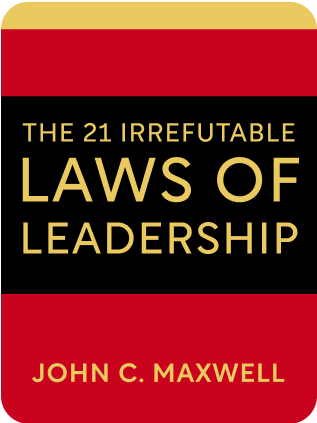

This article is an excerpt from the Shortform book guide to "The 21 Irrefutable Laws Of Leadership" by John C. Maxwell. Shortform has the world's best summaries and analyses of books you should be reading.
Like this article? Sign up for a free trial here .
What is the Law of Magnetism? What do you think “magnetism” means in the context of leadership?
The Law of Magnetism is the ninth law in The 21 Irrefutable Laws of Leadership by John C. Maxwell. The main premise behind the Law of Magnetism is that people tend to gravitate towards and follow people who are similar to them.
Keep reading to learn about Maxwell’s Law of Magnetism and learn some real-world examples of its application.
Understanding the Law of Magnetism
By nature, people are attracted to people with whom they share a lot of fundamental characteristics. Consider your friends, followers, and the people around you. You’ll probably notice some similarities:
● Age. You attract people who are approximately the same age as you. ○ For example, in the dot-com boom of the 1990s, most of the people who worked in the industry were in their twenties and thirties, because the leaders that founded the companies were in that age range and hired people like them.
● Attitude. Positive people tend to attract positive people, and negative people tend to attract negative ones. Attitude is also contagious—people will change their attitudes based on the people around them.
● Relatability. You attract people who have a similar culture and background to your own. ○ For example, employers tend to hire people who are the same race as they are.
● Morals. You attract people who have similar values to your own.
○ For example, J.F. Kennedy was an idealist. He wanted to make the world a better place and he founded the Peace Corps. The Peace Corps is full of people who have similar values to Kennedy’s.
● Compatible energy. It’s difficult for people with different energy levels to work together. You attract people who have a similar level to your own.
● Talent in your field. Followers are attracted to leaders who are good at the things they’re good at.
○ For example, football players want to be coached by people who are good at football.
● Leadership skills. If you’re a leader, you’re going to attract other leaders. Because of Law #7 (people follow the strongest leader), the leadership skills of your followers won’t be quite as developed as your own, but they’ll have potential.
If you let this law run unchecked, you’ll end up with a team of people who all have the same strengths and weaknesses as you. Your team will be about as effective as a soccer team made up entirely of goalies.
To build a team of people who aren’t like you, you have to change yourself so you attract different people. Changing yourself may be just a matter of increasing your skills. For example, if you want to attract more and better leaders, become a better leader yourself. You may also need to take a look at your character. If you’re attracting negative, immoral people, consider your own values.
Example of “Successful” Application of the Law: Dr. Butcher and Adolf Hitler
The Law of Magnetism is a phenomenon rather than a rule you can break or follow, so the rule will always apply itself unless you actively work against it. Here are two examples of the law at work, one with positive consequences, one with negative:
● Dr. Orval Butcher was an excellent musician. When he was pastor of Skyline Church, many of the other people who worked at the church were also musical. Because Dr. Butcher was a musician, he attracted other musicians. When John C. Maxwell (a leader) took over as pastor, the musicians were replaced by leaders.
● Adolf Hitler was a strong leader with evil values, and so he attracted other strong leaders with similar values. His team was made up of brutal anti-Semites who ordered executions, just like him.
Example of “Failed” Application of the Law: NFL Diversity Hiring
This law can’t be “disobeyed”—you will attract people similar to yourself whether you like it or not. However, while you can’t choose who you attract, you can choose who to put on your team, and there are other ways to attract people besides this law.
For example, in the NFL, the team owners and coaches are mainly white. Members of the league wanted diversity, so they put in place a quota—at least one minority candidate had to be included in the interview process for head coaches. The policy helped hire more African American coaches. (However, other than race, the African American coaches have a similar background to all of the other coaches in the league.)
Applying the Law of Magnetism
People follow morally upstanding leaders that they trust. What does your character communicate to your followers?
What positive personality traits do your followers admire in you?
How do you gain the respect of your followers? Remember that making good decisions, admitting your mistakes, and prioritizing others all contribute.
What might be holding you back from gaining the full respect of your followers? (Do you fail to admit when you’re wrong? Do you tell half truths?)
How can you improve the message your character sends to followers?

———End of Preview———
Like what you just read? Read the rest of the world's best book summary and analysis of John C. Maxwell's "The 21 Irrefutable Laws Of Leadership" at Shortform .
Here's what you'll find in our full The 21 Irrefutable Laws Of Leadership summary :
- Why working with people is the only way to do meaningful work
- How to become the kind of person that can get things done
- Why you don't need to be good at all the laws of leadership to be a good leader






